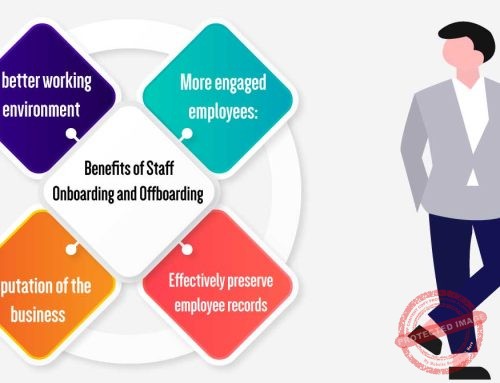Hiring a bookkeeper is a challenge for many small firms, startups, and business owners. Finding a qualified and eligible worker at a reasonable price is becoming increasingly difficult these days.
However, you can save money by using the bookkeeping services that many businesses outsource, and you’ll get year-round assistance with your accounts.
Although a question can be asked, “Do outsourced bookkeeping services really save your time?”
For small businesses, outsourced bookkeeping provides a comprehensive accounting department experience. Daily transaction coding, accounts payable, accounts receivable, payroll, management financial reporting, and many more tasks are all handled by outsourcing.
So, let’s discuss it without delay!
How Do Outsourced Bookkeeping Services Save Time?
Bookkeeping can be extremely difficult for start-ups and small businesses. In terms of accounting, you have three choices as an owner or manager: do it yourself, delegate the task to an employee, or hire a third party.
In addition, it can also slow down your growth and soon drain your financial resources to add more people to your finance department.
You’ll discover that as your company expands, expanding the business will take up less of your time, and more of your time will be spent managing your finances.
The success of a business depends more than anything else on accurate bookkeeping. It helps you track when your customers and vendors need to be paid, set growth targets, and improve company cash flow. It is also essential for preparing your taxes.
As a result, outsourcing office tasks such as bookkeeping and accounting allows you to focus your time, effort, and resources on developing a business strategy. More sales will result from it, in addition to networking opportunities and customer relationships.
The market for accounting services is projected to grow at a compound annual growth rate (CAGR) of 11.1% to $2.02 trillion by 2026. The growth of the accounting services market is being driven by regulatory reforms in the financial industry, which have increased demand for services such as tax advising and accounting.
The Cost of Outsourcing Bookkeeping Services
The price tag for bookkeeping services will vary significantly depending on the specific needs of the small business or nonprofit.
Additionally, the price of bookkeeping services varies depending on the sector in which you operate, the size of your business, the number of employees, how you manage payroll, the amount of outstanding bills, and the volume of other transactions.
For small and medium-sized firms, the average cost of outsourced bookkeeping services ranges from $300 to $2,000 per month, depending on the number of hours required each month. It would cost your company $24,000 a year, even at the top of the scale ($2,000 each month).
In addition to the necessary bookkeeping tasks, how your accounting systems, terms and conditions, rules and processes, and notification requirements are set up and managed will impact the cost.
How to Outsource Bookkeeping Services
The procedure may alter slightly depending on whether you choose to outsource your bookkeeping to a human-only service, an independent professional bookkeeper, or a hybrid bookkeeping service.
- To set up integrations and connect all the financial accounts and software your company already uses, your dedicated account manager will work with you.
- From there, the procedure is dependable and automatic, gathering information about your finances from all sources.
- To record, classify, and reconcile transactions, bookkeepers often work with specialized software. You are free from thinking or worrying about your books in the interim.
- We deliver your clear financial statements at the end of each month.
5 Advantages of Outsourcing Bookkeeping Services
Outsourcing bookkeeping services has become a practical solution for businesses looking to reduce costs and improve efficiency. Instead of managing books in-house, many companies now rely on professional external firms to handle their financial records. This shift offers several compelling benefits that directly support business growth, accuracy, and long-term sustainability. Below are five key advantages of outsourcing bookkeeping services, each of which is explained in detail.
-
Reduced Operational Costs
Outsourcing helps businesses reduce payroll expenses, training costs, and overhead associated with in-house bookkeeping. You no longer need to hire full-time staff or invest in accounting software and equipment. Instead, you pay only for the services you need, making it a cost-effective option for startups and small to medium enterprises. This enables better cash flow management and provides more flexibility in the budget for growth initiatives. -
Access to Professional Expertise
When you outsource, you tap into a pool of qualified professionals with specialized experience in finance and accounting. These experts stay updated on tax laws, compliance requirements, and industry standards, ensuring your books are accurate and legally sound. Their experience across multiple industries also brings added insights and best practices to your financial processes. This expertise can be challenging to find and retain in a full-time employee. -
More Time for Core Business Activities
Outsourcing eliminates the need for business owners to spend hours managing transactions, receipts, and reports. This frees up time and mental energy that can be redirected toward strategic decision-making and business development. Employees can also focus on tasks that directly impact profitability, rather than getting tied up in administrative work. With bookkeeping taken care of, productivity across your organization naturally improves. -
Scalability and Flexibility
As your business grows, so do your financial needs. Outsourced bookkeeping services are easily scalable, allowing you to add or reduce services as needed, depending on the season or the stage of your business. Whether you’re expanding rapidly or experiencing a slow period, you have the flexibility to adjust without worrying about hiring or downsizing. This adaptability ensures you’re always aligned with your current business demands. -
Improved Accuracy and Compliance
Professional bookkeeping firms adhere to standardized processes and utilize reliable software, thereby reducing the risk of errors or omissions in your records. They ensure that financial statements are updated regularly and meet regulatory standards. Accurate books mean fewer surprises during tax season or audits and help maintain your company’s credibility with stakeholders. This precision also supports better financial planning and decision-making throughout the year.
Outsourcing bookkeeping services not only saves time and money but also brings structure, expertise, and peace of mind to your business operations. With fewer errors, improved reporting, and a greater focus on core goals, it positions your company for consistent, stable growth in an ever-changing market.
What Services Are Included in Outsourced Bookkeeping?
Any one of the following jobs can be completed by a bookkeeping service or an outsourced bookkeeper:
- Importing financial data from your credit card balances, bank statements, invoices, payroll records, and many more.
- Sorting and categorizing those transactions can help ensure everything is in order.
- Keeping track of expenses and future earnings.
- Ensuring that your books are always accurate and up to date.
- Providing you with accurate financial statements every month or every three months, containing a balance sheet, a statement of cash flows, and a profit and loss statement.
- Providing you with an understandable explanation of those financial figures, as well as other parts of your bookkeeping.
Bookkeepers Are Low-Level Accountants- A Myth
In fact, without bookkeepers, accountants would be at a loss. Essentially, a bookkeeper’s role is to compile accurate and usable financial data about a company’s expenditures. For a company’s financial operations, they thus produce reports that serve as “primary sources.”
Accountants then develop strategies and recommendations for a business’s long-term financial objectives using the raw data provided by the bookkeepers.
Make no mistake, the two professions are distinct, and each has value in and of themselves. Occasionally, one person will become proficient in both and handle all of a company’s financial demands.
Tips to Get A Successful Bookkeeper
1. Declare Your Needs:
Being explicit with your outsourced bookkeeper about the data you require to support informed decisions is crucial during the onboarding process.
2. Establish Continuous Responsibilities:
There are several choices for managing a company’s financial operations, depending on the size and stage of the firm. There are numerous roles—both internal and external—that can support daily operations, as well as reporting and strategic advisory tasks.
3. Facilitate the Transfer of Information:
Sensitive financial and/or tax information sent by email carries inherent dangers. This is why managing documents through a secure route is necessary.
4. Stay Proactive:
With the knowledge and skills of an external bookkeeper and accountant, you may make data-driven company decisions thanks to management accounting’s ability to generate financial intelligence.
5. Keep up with your finances:
Financial reporting is essential for your company’s compliance, to ensure that the numbers balance, and to prevent cash flow issues. Additionally, you require project management reporting to enable more informed company decisions.
FAQs
- What does an outsourced bookkeeper do?
You can delegate all of your bookkeeping responsibilities to professional staff who work for outsourced bookkeeping services. They will create all of your accounts payable, accounts receivable, and credit card transaction entries as well as your financial reports, which will include balance sheets. - What three categories of bookkeeping exist?
The most effective way for a corporation to track its income and expenses is to employ three different forms of accounting. The cost, managerial, and financial accounting sections that follow cover these areas. - What is the guiding principle of bookkeeping?
Debit all costs and losses in accordance with the golden rule of nominal and real accounts. Give credit to what is sent.
Final Thought
For clients who want to outsource their bookkeeping responsibilities, there are important benefits. Cost-effectiveness comes first, then contract flexibility or a reduction in the number of functions.
Bookkeeping is essential to a company, but it can often be a challenging task. It takes effort and specialized knowledge.
Without expertise, several mistakes could be made that would cause your company to suffer or perhaps go out of business. You can contact us for an expert’s opinion.






